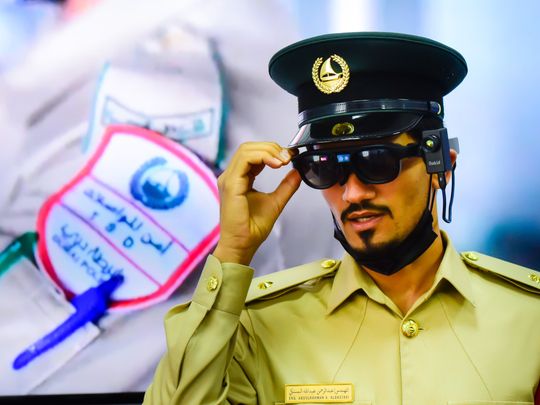Dubai: Dubai Police have established a foolproof system to secure the emirate’s public transport sector, an official told Gulf News.
Brigadier Obaid Al Hathboor, Director of Transport Security Department in Dubai, said that police are all set to introduce a facial recognition system on public transport to assure more security for commuters and residents. The technology is being brought in as the country gears up to host the Expo 2020 Dubai next year.
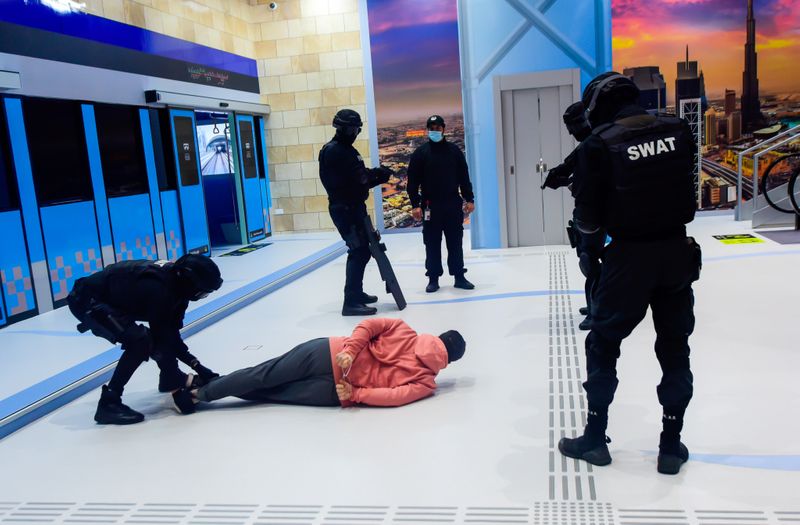
Image Credit: Virendra Saklani/Gulf News
“Using artificial intelligence (AI) such as facial recognition has proven its effectiveness to identify suspicious and wanted people. We aspire to raise our performance by building on our current capabilities, to ensure a high level of security in public transport,” Brig Al Hathboor told Gulf News in an exclusive interview at the Hamdan Smart Station for Simulation and Training, located at the Dubai Police Headquarters.
Smart helmets
He said the technology will be rolled out in the coming months across all Metro stations in the emirate. Dubai Police’s smart glasses called Rokid T1, and the smart helmets that were used during the COVID-19 pandemic to scan commuters’ temperatures, will have more advanced technology in the future like facial recognition to identify wanted people. “Usually, it takes at least five hours to identify a suspect, but with facial recognition technology, it takes less than a minute.”
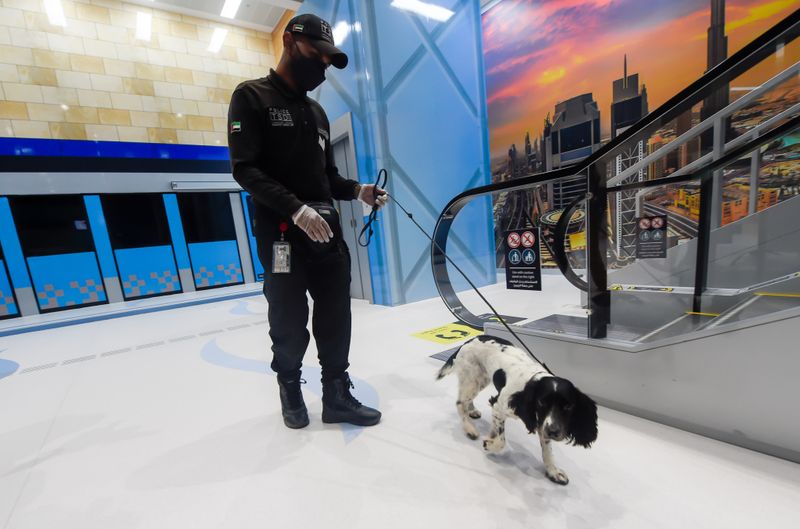
Image Credit: Virendra Saklani/Gulf News
Dubai Police aim to adopt the vision of His Highness Shaikh Mohammad Bin Rashid Al Maktoum, Vice-President and Prime Minister of the UAE and Ruler of Dubai, of making Dubai the safest and smartest city in the world. “All commuters will be secured during travelling. Special SWAT teams will be deployed at major Metro stations as well as K9 units,” Brig Al Hathboor said.
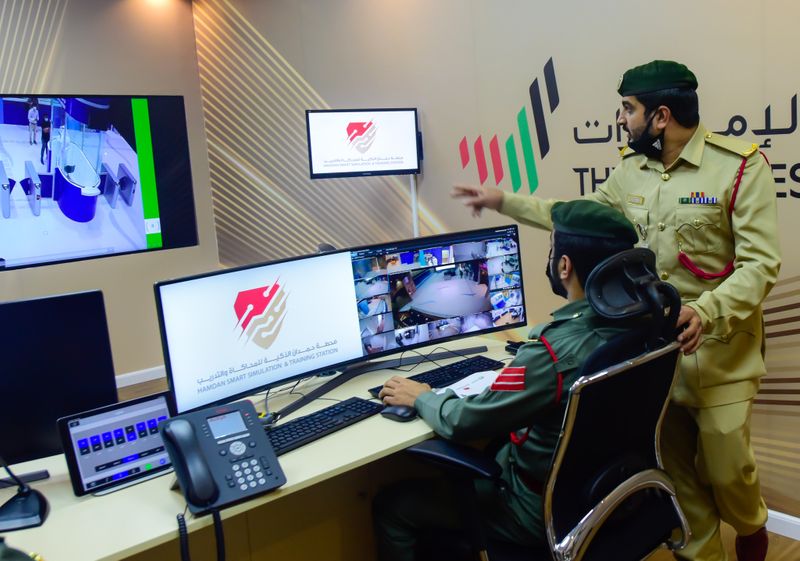
Image Credit: Virendra Saklani/Gulf News
Securing exchange houses at Metro stations
One of the advanced technologies that will be used is the smart alarm watch to prevent robberies in exchange houses inside Metro stations. A policeman on duty inside Metro stations will be wearing the smartwatch, which will be linked to a smart device placed at the exchange house inside the Metro station to alert the policeman about security threats or robberies.
Hamdan Smart Station for Simulation and Training
Brig Al Hathboor said the police station was established based on AI technologies for security solutions. On October 25 this year, Sheikh Hamdan bin Mohammed bin Rashid Al Maktoum, Dubai Crown Prince and Chairman of the Executive Council of Dubai, inaugurated the station.
The state-of-the-art training facility of the Transport Security Department in Dubai aims to enhance security efforts and increase the readiness of security and law enforcement personnel. Equipped with the latest tools, the station utilises virtual reality and simulation technologies to provide comprehensive scenario-based emergency training.
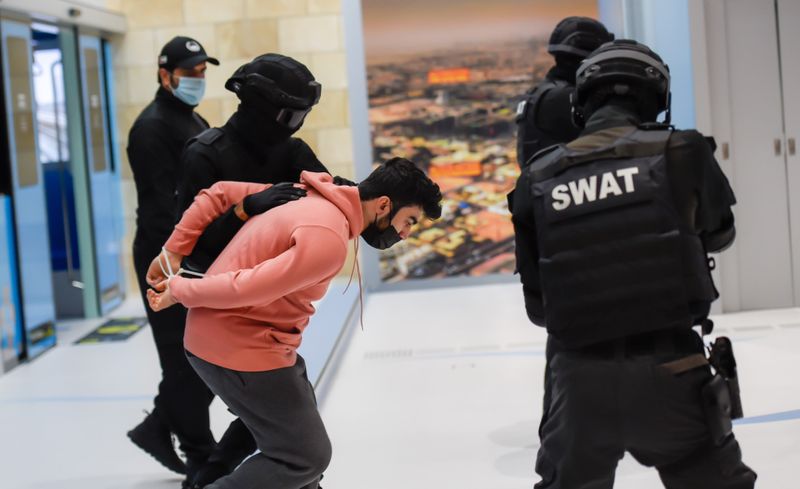
Image Credit: Virendra Saklani/Gulf News
Read more
‘Secuity challenges’
“We train the force on different scenarios like hostage crisis, terrorist attack, robberies and different security challenges in this station. We can simulate any scenario at Hamdan smart station to increase the level of readiness for our policemen,” Brig Al Hathboor added.
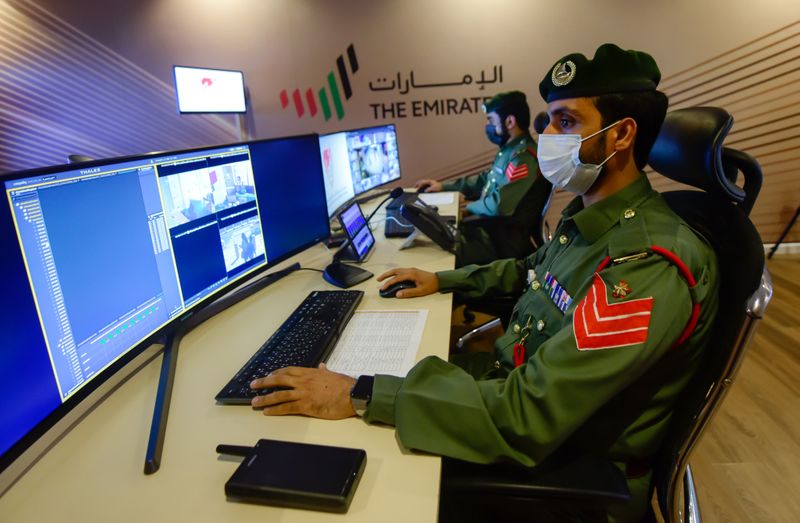
Image Credit: Virendra Saklani/Gulf News
The station has a mock-up of a Metro station and operation room equipped with latest intelligent security systems used in the management of transportation security. It has a ‘future’ hall, which is used to train policemen via virtual technology by filming 360-degree simulations of real-life crime situations.

